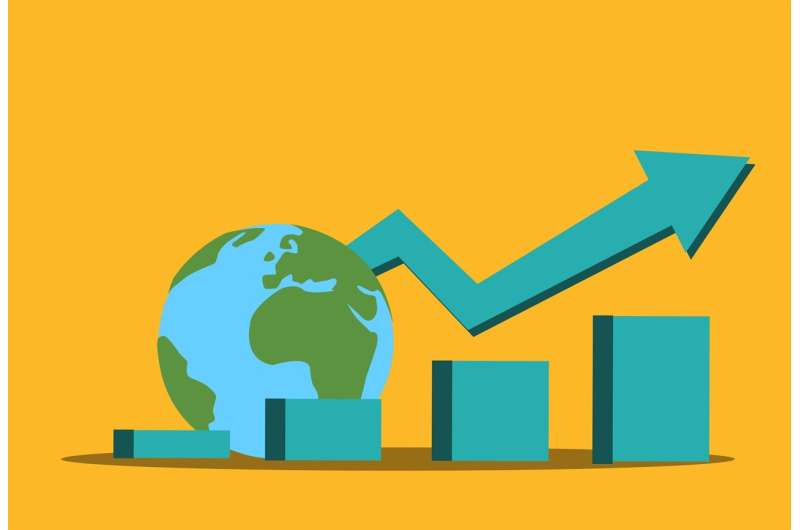Save the economy, save the planet, says sustainability expert

A new book by UVM economist Jon Erickson, "The Progress Illusion: Reclaiming Our Future from the Fairytale of Economics" (Island Press, Dec. 1) explores the harsh economic realities that have led to sky-high inflation, growing inequality, polarized politics, and climate crisis.
A leading voice in ecological economics, Erickson explores his personal journey away from a belief in traditional trickle-down economics—and even more progressive concepts like "green growth" used in sustainable business.
In this Q&A, Erickson discusses the book—which has gained attention from CNN and other news outlets. UVM's Blittersdorf Professor in Sustainability Science and Policy outlines how economic, social, political, and cultural changes can lead to a sustainable and just future.
Let's start with title 'The Progress Illusion.' What's the illusion?
The progress illusion is a fairy tale of humanity's place and purpose in the world. It's a story built on hyper-individualism and unlimited growth that is at odds with ecological reality and our innate sense of justice. It's an illusion that economists have been teaching and practicing for decades that has helped double the size of the global economy every 25 to 30 years while eroding the very foundations of society and quality of life in the process.
What are the issues with 'green growth?'
Green growth has become a buzzword in business, government, international development agencies—even the Intergovernmental Panel on Climate Change. It states that the global economy can continue to grow at two to three percent a year and dodge our planet's environmental limits through technology and efficiency.
But at a 3% growth rate, we would still double the global economy in just 24 years. Given how tightly environmental depletion and pollution have been tied to growth in the past, I do not see a path to climate stability or biodiversity goals in the heroic assumptions about technology development and adoption held by green growth proponents. Wishing for a "Star Trek" economy avoids the political and cultural changes needed to live well within our means.
In the book, you chronicle your personal evolution as an economist. How would you summarize that journey?
My change in direction started in college. Saturated in the "greed is good" ethos of the late 1980s, I set out to study economics, major in business, and make lots of money. But I inherited my mom's sense of fairness and love of the outdoors, and I started to realize that mainstream economics was at odds with higher purposes of social justice and Earth stewardship. When I started to look for bridges between economics, ethics, and ecology, I discovered the emerging field of ecological economics and haven't looked back since.
What role do government and collective organizing play?
We are seeing communities coming together to build more sustainable, equitable economies, including cooperatively owned enterprises, natural asset trusts, and local watershed, foodshed, and energyshed planning. Our challenge is to scale these efforts out and up. At state and federal levels, new metrics are being adopted to encourage more just and sustainable outcomes, such as the Genuine Progress Indicator—which Vermont was a leader in—and new natural capital accounts by the Biden Administration. There is no shortage of good ideas and intentions, only a lack of political will to break from old thinking.
You advocate for radical pragmatism. How would you define that?
Radical pragmatism recognizes the near-term concrete things that we need to do. For example, I've spent a career researching how a carbon tax could help wean us from fossil fuels. But we also need deeper, more comprehensive shifts away from the status quo. The radical part means reaching beyond voluntary, market mechanisms to take actions like banning new fossil fuel infrastructure, as some U.S. cities and counties have done. We must break from social, technical, and economic path dependencies that lock in climate impacts.
You write that culture influences our views of economics. Please elaborate.
The economist John Kenneth Galbraith wrote "economic ideas…cannot be seen apart from the world they interpret." It helps to understand the ideology behind our existing economic system in order to change it.
My interpretation is this: our consumerism culture encourages us to live beyond our means and that powerful interests are privatizing the benefits and socializing the costs of an economy that no longer serves our whole society. Among the ways to shatter the illusion that infinite growth on a finite planet is possible, let alone desirable, is to explore new cultural narratives that embrace the caring and sharing side of humanity.
Provided by University of Vermont



















